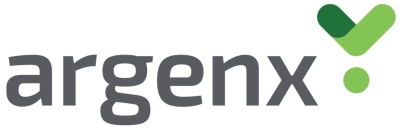Therapeutic muscle blocking using MuSK antibodies
In this project the partners combined their unique patient-derived MuSK antibodies and expertise in neuromuscular disorders, with the advanced antibody technology of argenx to further develop a powerful new agent to block muscle contraction. During this study the aim was to generate pilot data to support the transit from in vitro experiments to proof of concept in animal models for neuromuscular diseases.
Successful communication between nerve and muscle is critical for muscle contraction, movement, communication and ultimately life. Inhibition of neuromuscular transmission is regularly used for the treatment of disorders hallmarked by muscle hyperactivity. For example, botulinum neurotoxin, an inhibitor of presynaptic acetylcholine release, is successfully used for the treatment of spasticity, dystonia, or tension headache. Unfortunately, depending on the botulinum neurotoxin type, up to 40% of individuals become resistant and require alternative treatments. Moreover, botulinum neurotoxin cannot be produced synthetically yielding an important technical limitation. Given the relatively high prevalence of spasticity (2.44 per 1000 inhabitants in the Netherlands, or ~42,000 patients in total) and several forms of dystonia (about 8,000 patients with cervical dystonia in the Netherlands, based on European figures), a safer and more reliable alternative therapy would be very welcome.
Establishment and maintenance of neuromuscular synapses is tightly regulated through several signalling cascades. MuSK is at the heart of one of these pathways. Inhibition of MuSK either by genetic interference or by autoantibodies in myasthenia gravis patients results in severe muscle weakness. They hypothesised that inhibition of MuSK will be beneficial for disorders characterised by muscle hyperactivity.
Based on their monoclonal MuSK antibodies from myasthenia gravis patients they generated monovalent MuSK antibodies and characterised their functional effects in myotube cultures. In addition they administered them locally in the hind limbs of mice, by intramuscular administration and assessed limb muscle performance using the Catwalk. Their experiments confirmed the blocking ability of these antibodies on MuSK signalling but could thus far not induce local muscle weakness. This is likely due to the rapid loss of intramuscular antibody. They are currently examining future study designs for continuation of this project.


